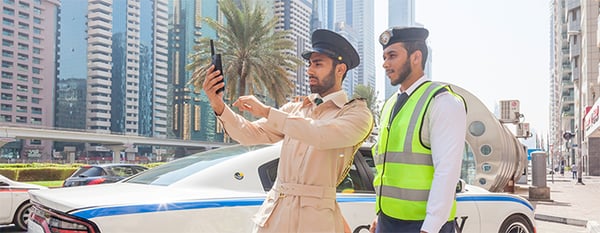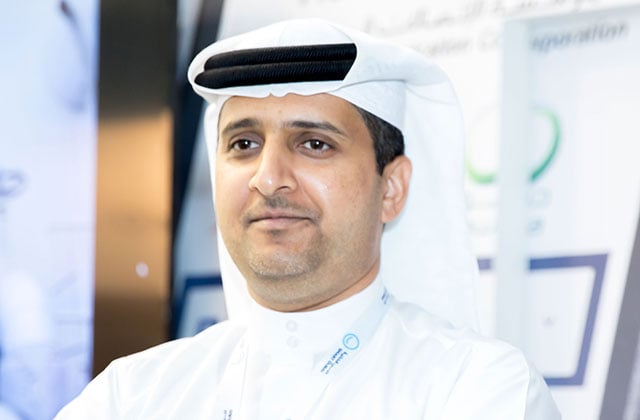- Segments
- Products and solutions
- Products and solutions
- Broadband
- Devices and accessories
- Applications
- Control Rooms
- TETRA and Tetrapol
- Customers
- Ecosystem
- How to buy
- Blog
- EN
“We think it’s vital to talk to customers. We first need to understand their needs and then try to find the best ways to meet their demands.”
We see technology as producing both good and bad effects; both problems and benefits. At Nedaa, we try to take emerging technologies and use them for the good they can do, particularly in the mission-critical fields.
Of course, because we provide services to the government, there is also a political aspect to what we do. It’s true that we could not have achieved the success we have had without the continuous support of the government departments we serve. There has also been strong support and encouragement from the country’s leaders.
I would say, probably changes in public safety requirements are the biggest challenge we will face in the future – that, and the need to adapt quickly as end-users’ demands change.
The main purpose of owning a private network is so we can make sure it is reliable, available and above all, secure. With these parameters in place, we can offer our public safety customers secure communications for both voice and data.
One of the big inspirations for everyone here is the Smart City of Dubai. This is really looking to use many rapidly developing technologies. Obviously, there is the Internet of Things, but also many other emerging technologies, such as robotics, blockchain, big data and analytics, artificial intelligence, machine learning and augmented or virtual reality.
At Nedaa, we are aiming to adopt many of these technologies and ideas. We feel they can help us meet the challenges we know we will face in public safety and secure communications. We are currently upgrading and expanding our TETRA network and ensuring it can work alongside our 4G network, which should be ready by the end of the year. We are also looking forward to deploying 5G pilot projects at Expo 2020.

It’s true that user demands are becoming more diverse. This is isn’t really surprising when we think of the rapid growth in technologies and the huge demand for more and more new features over private networks. We think it’s vital to talk to customers. We first need to understand their needs and then try to find the best ways to meet their demands.
Organizations have an important role to play in ensuring their ‘digital native’ employees have a good awareness of security. These users also have a lot of experience, which could be very valuable in shaping initiatives in communications and security.
Digital natives must also know how the high security of mission critical networks can help them protect lives and property – especially as the technology is moving very quickly towards mobile broadband.
We often conduct workshops with our customers – it’s a very good way to understand their needs. We also perform business analysis exercises, using the outcomes to develop solutions and services.
Interoperability testing reassures our customers that the solutions they purchase from different vendors will work together. It also ensures their solutions are open standard and will work with equipment from a range of vendors and manufacturers.
I think they need to know why there is a need to change and be sure there is actually a strong demand for it. Only then can they manage the demand and evolve the technology to meet it.
Take a look at the 15 most interesting observations from all the interviewees gathered into a printable document. Get the pdf and print out the quote that most inspires you -
The views and opinions expressed herein are those of the interviewee and do not necessarily reflect the official policy or position of Airbus.
Mansoor Buosaiba (Born Aug 1972) is the Vice Chairman of the board and Chief Executive Officer of Professional Communication Corporation – Nedaa, one of Dubai Government entities which is established in 2008 under the law number 9. Nedaa objectives is to provide telecommunication services to all of Dubai government and semi Government and vital bodies to be used in their daily operations as well as to create telecommunication system to handle catastrophes, human and natural crises in line with Dubai government strategy. He has direct interaction with local departments and federal authorities and international such as TRA, and Tetra and Critical Communication’s Association (TCCA).
Currently, Mansoor Buosaiba is a board member in many organizations, such as Professional Communication Corporation - Nedaa, Mohammed Bin Rashid Space Centre, and Dubai Smart Government Office.

Mansoor Buosaiba, Chief Executive Officer of Professional Communication Corporation – Nedaa, Dubai